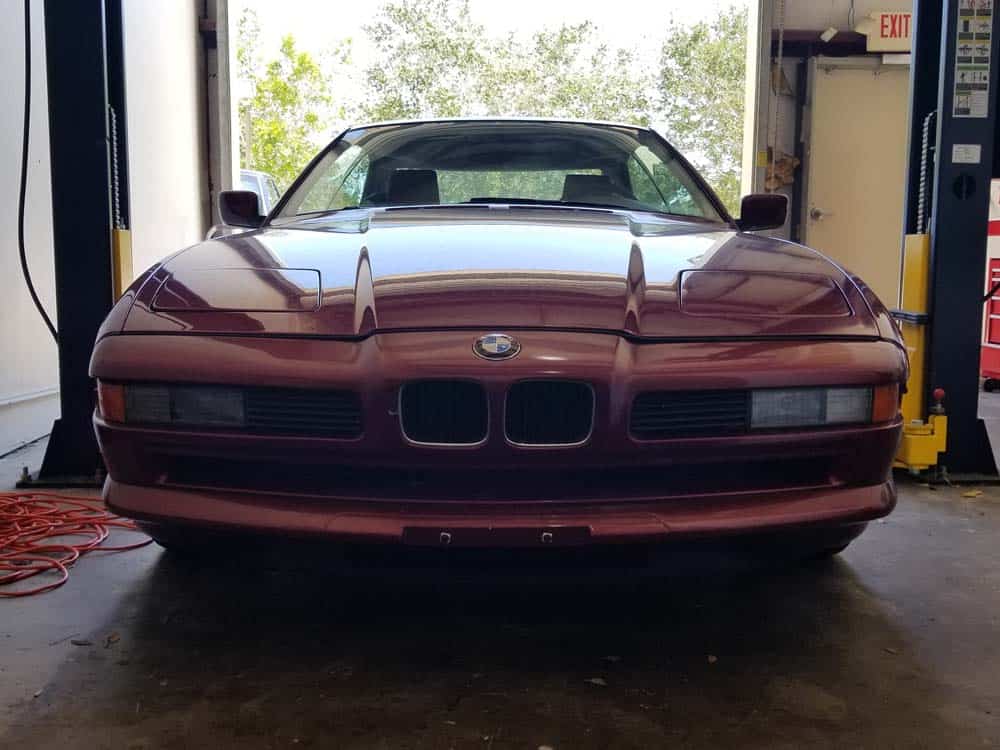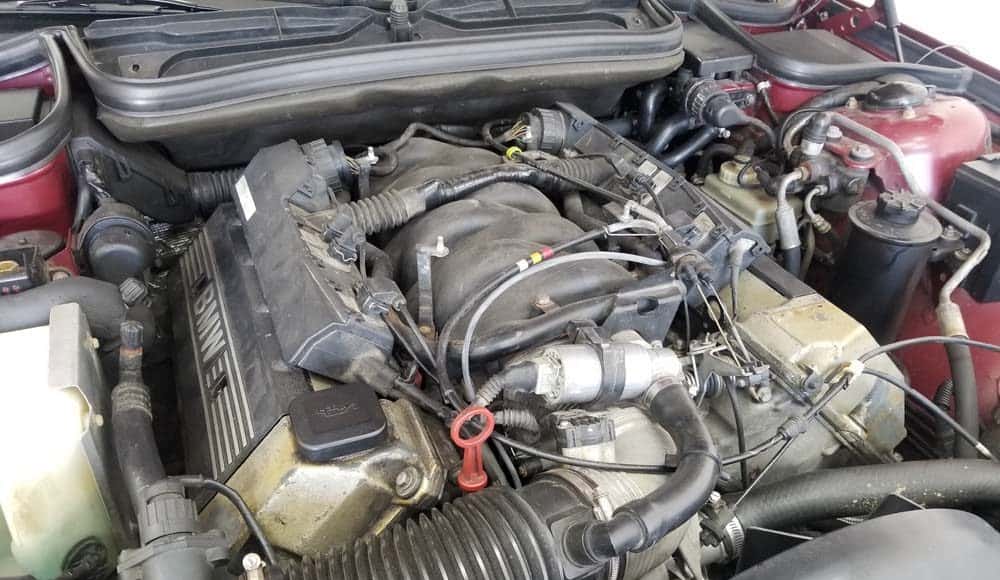Many owners (and potential buyers) of BMW models with the M60 8 cylinder engine are concerned about Nikasil damage. BMW Nikasil engine damage has caused great anxiety within the BMW community causing resell prices on vehicles with the M60 engine to remain lower than other V8 models. So what exactly is Nikasil and why are certain V8 BMW models from the 1990s like the 540i, 740i and 840i “blacklisted” because they have an M60 engine with Nikasil coated cylinders?

Nikasil is an electroplating that is applied to metals like aluminum and titanium to create a stronger, more wear resistant surface. It is composed of a nickel matrix that is mixed with carbon and silicone particulates. It is extremely hard with excellent wear characteristics, which makes it a popular choice for plating the inside of high performance engine cylinders. It is currently used as a performance upgrade in motorcycle, snowmobile and ATV engines that require high cylinder thermal heat dissipation, lubricity and hardness.
Nikasil is still a superior “spray in” liner for small high performance engines, but it has one serious defect in the larger BMW M60 V8. If gasoline with high sulfur levels is used in the M60 engine, small quantities of sulfuric acid will form in the cylinders. This sulfuric acid formation is due to the fact that the M60 V8 runs relatively cooler and at a lower compression than smaller engines. Over time the sulfuric acid will start to corrode the Nikasil lining causing the cylinders walls to become scored, sometimes through the coating and into the underlying engine block. This in turn causes the cylinders to lose compression and ultimately leads to premature engine failure. The infamous symptoms of a BMW Nikasil damaged engine are difficulty in starting the motor, very rough idle (both cold and warm), high oil consumption, smoking exhaust, and overall very poor performance.
Gasoline and sulfur content
Why was there higher sulfur fuel being sold in the early to mid 1990’s? The answer is simple…more moderate pollution emission standards. Sulfur is a natural component of crude oil that remains in refined gasoline unless removed. Even though U.S. exhaust emission standards from the 1970s and the Clean Air Act from 1990 substantially lowered vehicle exhaust pollution, they didn’t recognize the fact that high sulfur gasoline was also limiting the effectiveness of catalytic converters through the creation of sulfur dioxide. The EPA’s Tier 2 Gasoline Sulfur program, which was finalized in 2000, reduced gasoline sulfur content by over 90%. European standards for low sulfur gasoline were legally implemented in 1998 through directive 98/80/EC. Most fuel suppliers in the U.S. and Europe did voluntarily provide lower sulfur gasoline to their customers during these transitional times in emission standards. But since low sulfur fuel costs more to refine, there was still an abundance of high sulfur gasoline making its way onto the market through discount fuel suppliers.
So how do you ultimately know if your vehicle has any Nikasil damage without tearing it down and inspecting it? The short answer is…you don’t. But the BMW Repair Guide takes the same position as many other experts in the field do. After 25 years, it’s time to bury the hatchet on this issue. Unless you have a V8 BMW that has been sitting in a barn since the 1990’s pumped full of discount gasoline, then your M60 engine is most likely perfectly fine. We firmly believe that a BMW Nikasil damaged engine would have failed by now. Any that are still on the road today should be perfectly healthy.

We recommend avoiding the stigma created about owning a BMW M60 engine.The BMW Repair Guide’s 1995 840i has 140,000 miles on its M60 V8 and it is still running perfectly. In fact we feel that BMWs with the M60 engine offer great buying opportunities. In our opinion, some of the most wonderful models ever produced by BMW during the 1990s contain the M60 engine and can still be purchased at a great price. They are relatively easy to work on, and will provide years of driving enjoyment if properly maintained.
If you have any questions or comments concerning Nikasil damage to your M60 engine, please feel free to contact us.

